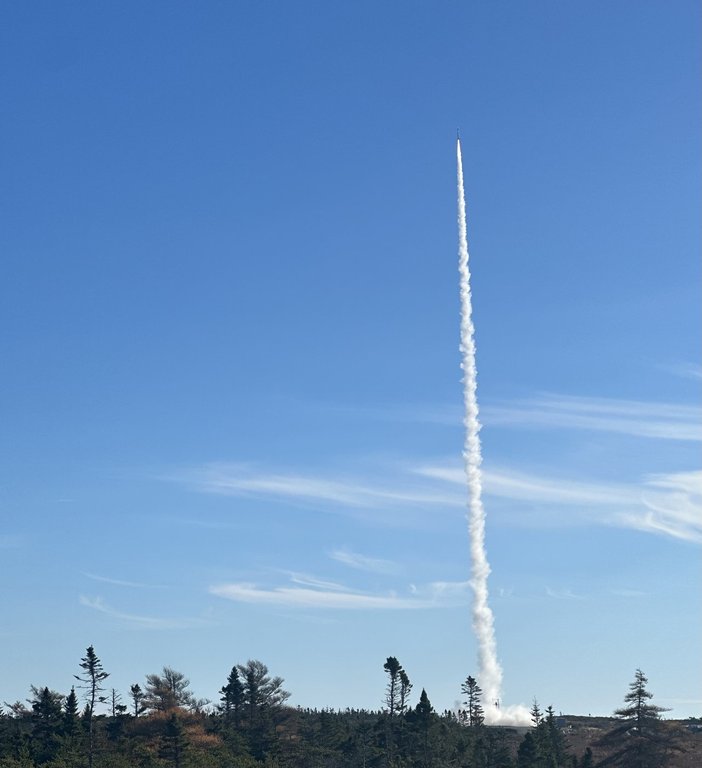Nova Scotia company says it has launched its second suborbital test rocket
Advertisement
Read this article for free:
or
Already have an account? Log in here »
To continue reading, please subscribe:
Monthly Digital Subscription
$0 for the first 4 weeks*
- Enjoy unlimited reading on winnipegfreepress.com
- Read the E-Edition, our digital replica newspaper
- Access News Break, our award-winning app
- Play interactive puzzles
*No charge for 4 weeks then price increases to the regular rate of $19.00 plus GST every four weeks. Offer available to new and qualified returning subscribers only. Cancel any time.
Monthly Digital Subscription
$4.75/week*
- Enjoy unlimited reading on winnipegfreepress.com
- Read the E-Edition, our digital replica newspaper
- Access News Break, our award-winning app
- Play interactive puzzles
*Billed as $19 plus GST every four weeks. Cancel any time.
To continue reading, please subscribe:
Add Free Press access to your Brandon Sun subscription for only an additional
$1 for the first 4 weeks*
*Your next subscription payment will increase by $1.00 and you will be charged $16.99 plus GST for four weeks. After four weeks, your payment will increase to $23.99 plus GST every four weeks.
Read unlimited articles for free today:
or
Already have an account? Log in here »
CANSO – The Nova Scotia company behind a plan to build Canada’s first commercial spaceport says it has successfully launched its second suborbital rocket.
Minutes after the launch from Little Dover, N.S., Maritime Launch Services said on social media, “And we have liftoff.”
The post was accompanied by a photo showing a rocket ascending into a blue sky above a stand of evergreens, a thin plume of white smoke trailing behind.

The company’s launch pad is near Canso, N.S., at the northeastern tip of mainland Nova Scotia.
In July 2023, the Halifax-based company launched a smaller amateur rocket — Goose 3 — built by students at York University.
In June of this year, Maritime Launch Services announced its plan to launch two suborbital rockets to an altitude above 100 kilometres, which is generally agreed to be the boundary between Earth and space — otherwise known as the Kármán line.
The company issued a statement saying its latest launch was a success, but it did not say how high its Barracuda rocket flew.
The test launches are part of the company’s plan to develop a launch complex capable of sending commercial satellites into orbit.
This report by The Canadian Press was first published Nov. 20, 2025.

